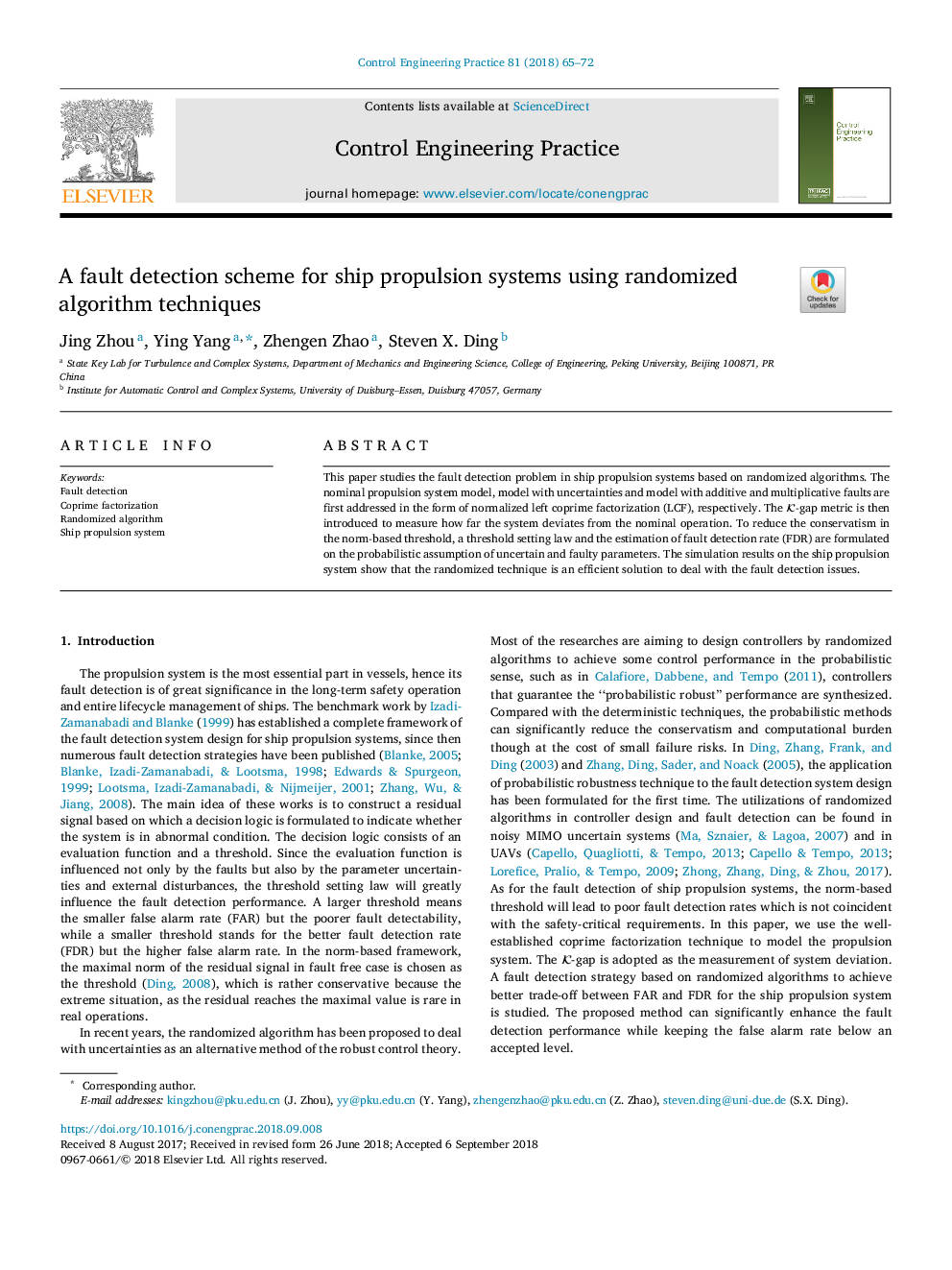| Article ID | Journal | Published Year | Pages | File Type |
|---|---|---|---|---|
| 10152103 | Control Engineering Practice | 2018 | 8 Pages |
Abstract
This paper studies the fault detection problem in ship propulsion systems based on randomized algorithms. The nominal propulsion system model, model with uncertainties and model with additive and multiplicative faults are first addressed in the form of normalized left coprime factorization (LCF), respectively. The K-gap metric is then introduced to measure how far the system deviates from the nominal operation. To reduce the conservatism in the norm-based threshold, a threshold setting law and the estimation of fault detection rate (FDR) are formulated on the probabilistic assumption of uncertain and faulty parameters. The simulation results on the ship propulsion system show that the randomized technique is an efficient solution to deal with the fault detection issues.
Related Topics
Physical Sciences and Engineering
Engineering
Aerospace Engineering
Authors
Jing Zhou, Ying Yang, Zhengen Zhao, Steven X. Ding,
